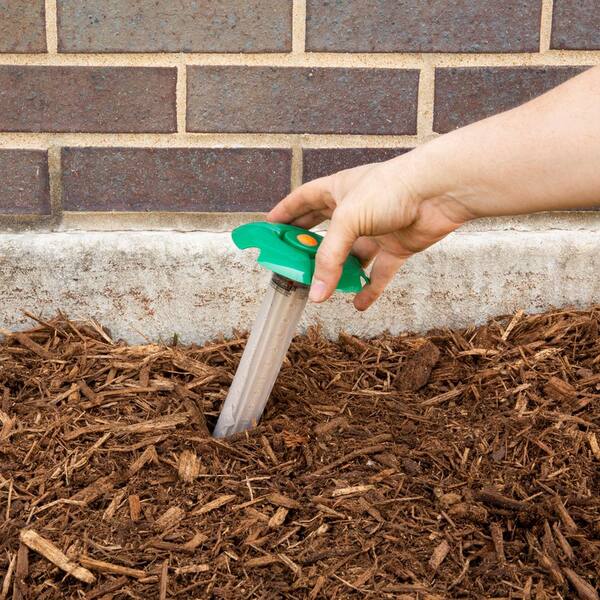Why Select Our Termite Control Services: Professional Solutions for Effective Security
Wiki Article
Ecological Effect of Bug Control: Harmonizing Efficiency With Sustainability
The environmental effect of bug control is a crucial issue that needs a delicate balance between attaining efficiency in managing parasites and making sure sustainability of our environments. As we aim to safeguard our plants, homes, and wellness from the threats positioned by insects, the approaches we utilize can unintentionally harm the atmosphere. From using unsafe chemicals that permeate right into our soil and water to the unintended consequences on non-target varieties, the effects of traditional parasite control practices are far-ranging. There are arising strategies that offer hope for a more lasting approach to pest administration. These remedies not just aim to deal with the instant parasite troubles however additionally consider the long-term health of our world.Unsafe Chemicals in Parasite Control
The application of dangerous chemicals in pest control poses substantial environmental and health risks that warrant cautious factor to consider and reduction strategies. Chemicals, pesticides, and herbicides are frequently made use of to eliminate parasites, however their prevalent application can result in unintentional effects. These chemicals can pollute dirt, water resources, and the air, influencing not just the targeted insects but also advantageous pests, wild animals, and people.
To resolve these risks, integrated bug administration (IPM) techniques are being advertised as a much more sustainable alternative. IPM entails a mix of approaches such as biological control, environment control, and the targeted use chemicals as a last resource (ant control durham nc). By embracing an alternative strategy to pest control, we can lessen the ecological and wellness impacts connected with damaging chemicals while properly managing pest populations
Effect On Non-Target Species
Taking into consideration the unintentional effects of bug control methods, the effect on non-target species is a vital aspect that needs comprehensive examination. While bug control actions intend to target specific parasites, other microorganisms in the environment might be accidentally impacted. Non-target varieties, consisting of advantageous insects, birds, creatures, and even plants, can suffer indirect or straight harm from pesticide applications or biological control approaches.Insecticides designed to fight a certain bug pest may damage pollinators like or all-natural predators such as ladybugs. Biological control agents, if not species-specific, can position risks to unintended targets, interrupting the environmental balance.
To alleviate the effect on non-target varieties, incorporated parasite monitoring (IPM) approaches that stress a holistic approach to pest control are recommended. These methods prioritize the use of ecologically friendly techniques, reducing injury to valuable microorganisms while effectively handling pest populations. Carrying out detailed risk analyses and keeping an eye on the end results of insect control initiatives are important steps in guarding non-target types and advertising total ecological community wellness.
Soil and Water Contamination
Unintended ecological repercussions of parasite control techniques extend past influencing non-target species, with substantial ramifications for soil and water contamination - ant control. Pesticides, herbicides, and chemical fertilizers made use of in bug control can leach right into the dirt and contaminate groundwater, presenting a threat to both terrestrial and marine ecosystems.Water contamination is another vital problem connected with pest control methods. To mitigate dirt and water contamination from pest control activities, incorporated pest management strategies that focus on sustainability and reduce chemical inputs are vital.
Air Contamination From Pesticide Use
Exposure to airborne chemicals throughout farming applications postures a significant issue for air pollution control procedures. They can volatilize into the air and form volatile organic compounds (VOCs) and other airborne pollutants when pesticides are sprayed onto plants - ant control. These chemicals can contribute to the formation of ground-level ozone, a major part of smoke that can have detrimental effects on human health and wellness, plant performance, and overall air top quality. Furthermore, pesticide drift, where pesticides are carried by the wind to unintentional areas, can result in the contamination of close-by environments and water bodies.
Strategies for Lasting Insect Control
In the world of agricultural methods, executing lasting insect control methods is paramount for maintaining environmental equilibrium and guarding crop yields. Sustainable insect control highlights making use of eco-friendly methods to handle bug populaces properly while minimizing harm to non-target microorganisms and ecological communities. Integrated Bug Management (IPM) is a widely adopted strategy that integrates organic, social, physical, and chemical control methods to attain lasting parasite monitoring solutions.Crop turning and diversity are also reliable techniques to interfere with pest life cycles and create less beneficial problems for parasites to prosper. Inevitably, by integrating these sustainable pest control approaches, farmers can accomplish a balance between pest administration efficiency and environmental stewardship.
Conclusion
Finally, the environmental influence of insect control approaches should be meticulously thought about to stabilize effectiveness with sustainability. Harmful chemicals utilized in pest control can result in dirt and water contamination, air contamination, and harm non-target types - ant control. It is vital to implement sustainable bug control strategies to reduce these adverse results on the environment and promote a much healthier ecological community for future generationsBy adopting an alternative strategy to pest control, we can reduce the ecological and wellness impacts linked with hazardous chemicals while effectively handling pest populations.

To reduce the air contamination triggered by pesticide usage, it is vital to adopt incorporated pest monitoring techniques that focus on the use of non-chemical insect control approaches, such as crop rotation, natural killers, and resistant plant varieties. Lasting insect control emphasizes the usage of eco pleasant methods to take care of parasite populaces properly while reducing injury to non-target organisms and ecological communities. Integrated Insect Monitoring (IPM) is a widely embraced strategy that integrates organic, social, physical, and chemical control methods to accomplish lasting pest administration solutions.
Report this wiki page